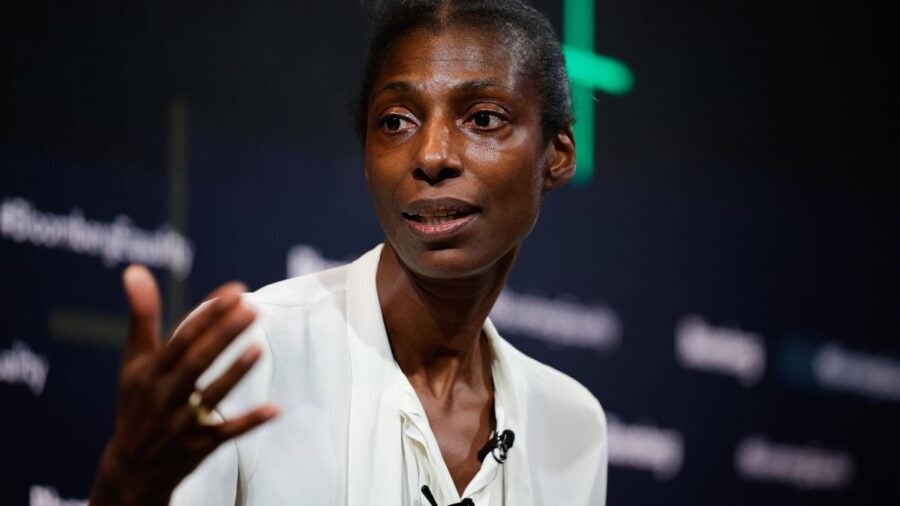
Dame Sharon White is to step down as chair of the John Lewis Partnership in February 2025 at the end of her five-year term. She has asked the board of the British retail group, which owns the eponymous department store chain and Waitrose supermarkets, to begin the process of hiring her successor.
White’s tenure as chair will mark the shortest in the John Lewis Partnership’s history, with all of her predecessors having served between 13 and 26 years in post.
The group posted a loss of £234m in 2022, a drop into the red which forced it to cancel the annual staff bonus scheme for only the second time since its launch in 1953.
Prior to her appointment as chair of the John Lewis Partnership, the Cambridge-educated White had been a high-flying civil servant, rising through the ranks at the Treasury before becoming the chief executive of Ofcom, the broadcasting regulator.
White’s lack of retail experience, her critics have suggested, was a red flag from the start. Both John Lewis department stores and Waitrose supermarkets have been charged with failing to establish their unique selling point sufficiently on her watch, losing out to more tech-savvy, online-ready competitors, with more reliable delivery services and more sensitive pricing against the backdrop of the Covid-19 pandemic and the cost-of-living crisis.
A series of unpopular (and difficult) decisions
White pursued a strategy of extreme downsizing during her tenure as chair. She oversaw the closure of 16 department stores and cuts to an estimated 4,000 jobs, including 200 management roles, while also starting the process to move the group’s head office from Victoria in London to a much smaller site. Prior to her exit announcement, it was reported that White was exploring the sale or leaseback of at least a dozen Waitrose store locations, too.
In March, the 56-year-old came under scrutiny when reports emerged that she was considering selling a stake in the John Lewis Partnership to a private investor to raise £2bn. The group, as its name suggests, is a publicly limited company owned by a trust on behalf of all of its employees. It is considered by many to be a core component of the John Lewis brand identity.
In May, White narrowly survived a vote of no confidence at the twice-yearly meeting of the group’s 60-member council, which is elected by employees to represent them. But no one, including White it seems, felt reassured by this result.
Still, some of the decisions made during White’s tenure as chair may be better appreciated with context. She joined the John Lewis Partnership just a month before the pandemic started.
Both John Lewis department stores and Waitrose supermarkets had rapidly expanded under the previous chair Charlie Mayfield. After Covid catalysed the shift to online shopping, the group was arguably, then, left with more floor space than it needed. So the store closures, while naturally unpopular, could in the long term, be viewed as justified.
But the cautionary tale to be heeded by the John Lewis Partnership here, and for other businesses looking in, is to not conflate qualifications with skills.
At the Treasury, White earned a reputation as an expert cost-cutter, overseeing a review of the financial management of the government and its response to the global financial crisis of 2008. But she was never tasked with growing her organisation, only scaling it back.
Failing to keep up with the competition
The key issue with White’s lack of retail experience was her lack of new retail ideas. It’s one thing to cut costs, and people, but there needs to be something in mind to replace them.
Where other shops and supermarkets adapted to and even embraced the pandemic and new market challenges, the John Lewis Partnership fell behind on pricing strategy, optimising supply chain deals and creative marketing campaigns, all the while bound by antiquated IT.
Rivals, meanwhile, have stepped up a gear. A resurgent M&S has cut prices on essential items such as milk and bread and broadened its product ranges. On clothing, it has pursued tie-ins with major brands and even secured actor and model Sienna Miller as a hugely popular celebrity endorsement. And M&S is not just limiting its target audience to the middle-aged and middle-class. It has invested in social media marketing as part of a bid to attract gen Z shoppers, too.
Tesco and Sainsbury’s have developed their Clubcard and Nectar loyalty schemes, with customers able to access discounted prices on a huge selection of items from the onset, compared with John Lewis’s limited and personalised offers which only happen after a customer has already made multiple purchases. Clubcard and Nectar points can also be redeemed outside Tesco and Sainsbury’s stores, with hundreds of different partner organisations to choose from.
On furniture and homeware, Dunelm and Ikea have been gunning for the John Lewis market share. Ikea’s move onto London’s Oxford Street next year will probably up the ante after it revamped its online and app offerings, as well as its click-and-collect services. Dunelm, meanwhile, has been opening new stores and has offered affordable prices when customers need them most.
Ultimately, Sharon White’s time as chair of the John Lewis Partnership will be characterised as a period of restraint. Her economising was not matched by innovation. And as retail becomes increasingly digital and consumer habits and expectations continue to evolve, in appointing her successor, the group should perhaps prioritise a career retailer, with a track record of creativity.
